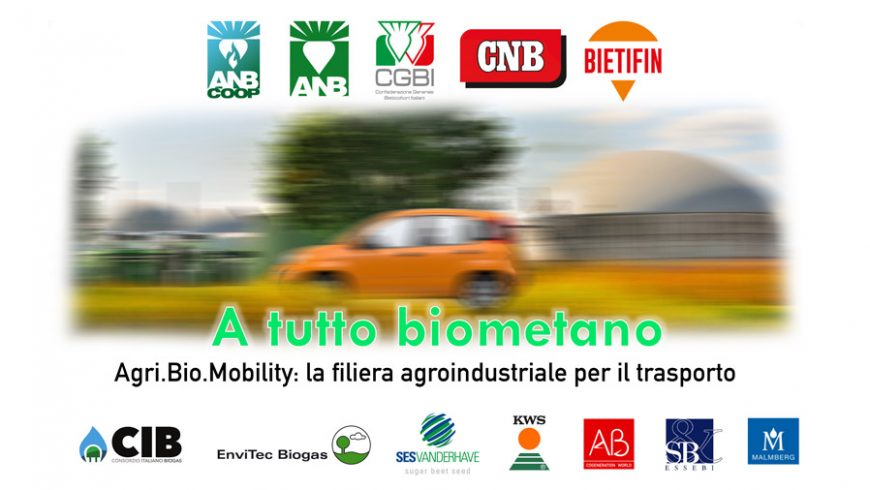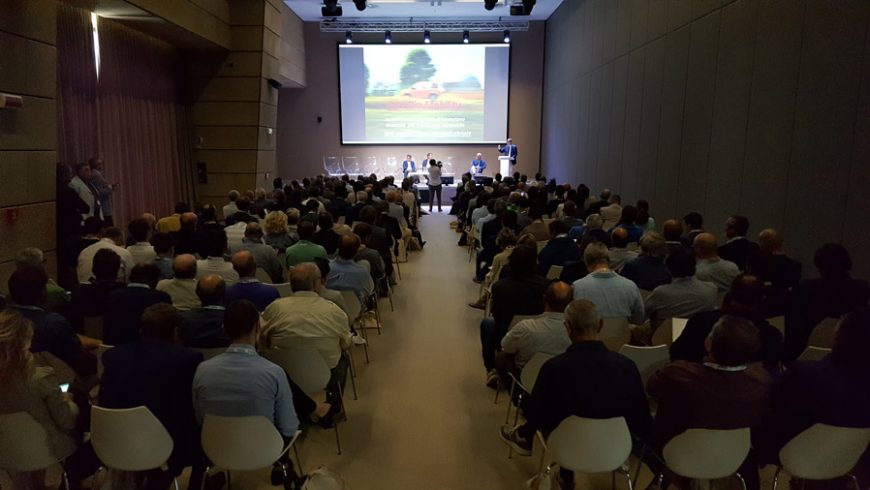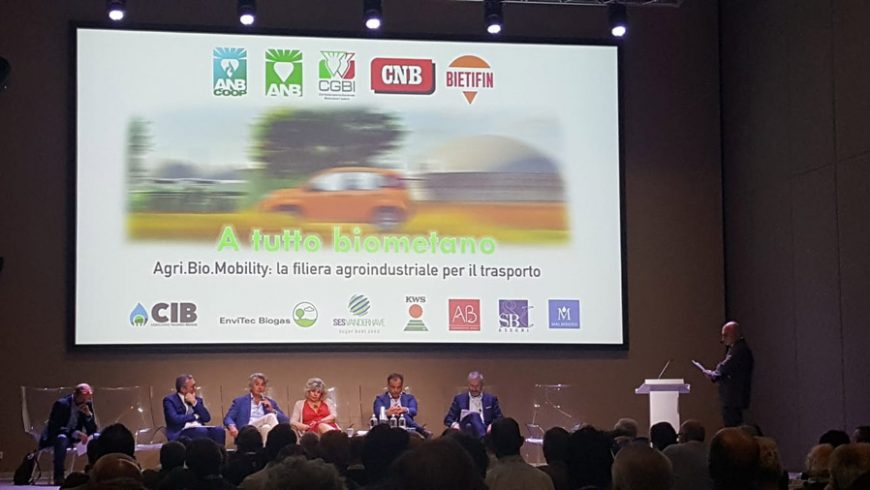Agri.Bio.Mobility: the first agro-industrial chain for sustainable transport
Bologna, 25 May 2018 – At Fico Eataly World more than 200 companies have gathered today for the launch of the Agri.Bio.Mobility platform, a new hub designed to link together companies producing biogas/biomethane, road transport companies and companies that aim for sustainability as a distinctive factor in their activity.
From now on, the farmer will not only produce food and energy, but also biofuels. This is the last frontier of the primary sector: agricultural by-products, beet pulp, grape marc, olive olive pomace and chicken manure will be used for the production of biomethane, thanks to the adoption of the ministerial decree of 2 March 2018 that encourages its development.
«We plan to aggregate more than 100 biogas/biomethane plants by the end of the summer to the Agri.Bio.Mobility platform», said organizers Giangiacomo Gallarati Scotti Bonaldi and Gabriele Lanfredi, respectively president and vice-president of the General Confederation of Italian beet growers (CGBI). Large companies such as Agripower (Maccaferri Industrial Group), Envitec and several individual plants have already joined. The value of sustainability explains, with an example, Gabriele Lanfredi who is also the coordinator of the Agri.Bio.Mobility project:«The diesel used for the transport of beets during the three months of harvesting, in the entire national area of 35 thousand hectares in total, is equivalent to the biomethane production of two plants. So only 2 biodigestors would be enough to make this logistics sustainable». The same opportunities apply to the Parmigiano Reggiano supply chain, as highlighted by Guglielmo Garagnani, president of Confagricoltura Bologna and vice president of the Parmigiano Reggiano Consortium.
Abri.Bio.Mobility is the evolution of the Agri.Bio.Metano project that started one year ago as part of the new CGBI group’s planning for the construction of 30 new plants capable of integrating the sugar beet price of 5-8 euros per ton, starting from the energy exploitation of by-products (pulp, leaves, collars) at a dramatic time for the sugar industry due to the collapse of sugar prices.
Having good environmental practices allows internal efficiencies and increases company sustainability, namely: improves the ability to do business. But now there is also one more element: being sustainable becomes a key with which to define the company’s mission.






